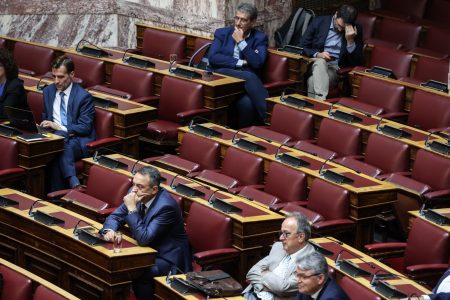Almost all electoral laws that have been implemented in Greece have distorted the ballot. They are distinguished by their ability to turn a minority into a majority and vice versa. One such example was the law that was applied in the 1956 elections. Although ERE had the fewest votes, it managed to govern with a Parliamentary majority by applying an electoral system that went down in history as “triphasic”. The triphasic system, which no party has since dared to use, was the Egg of Columbus. “By coincidence” EE, which was dominant in the game, took all seats in any prefecture where it had a majority, thus excluding its opponents. In the prefectures were it was in the minority, the seats were distributed among the parties with a proportional system.
The triphasic system seems to have stirred people up and as such has never been implemented since. The subsequent electoral systems were more or less based on an informal agreement between the larger, primarily, parties according to which whoever has the upper hand, also sets the rules. In recent times electoral systems with a clear intent have been passed by Parliament. Konstantinos Mitsotakis fell victim to the genius of the secret consultants on electoral matters. Ahead of the 1989 elections, PASOK policy makers, with Akis Tsohatzopoulos in charge, devised an electoral law that prevented Konstantinos Mitsotakis from becoming Prime Minister. He needed to win 47% of the vote in order to gain 150 MPs! Just to make the extent of manipulation clear, SYRIZA came to power with 36% of the vote.
Currently in our political history, the more the readings show that public opinion is shifting and the “damned Right” is tipped to rise to power, the more efforts there will be to change the electoral system “for the good of Greece”.
In our days the electoral system tends to turn into a political tool not only for the elections, but also for everyday political life. As long as there is debate going on.
However you cannot fight fate. As soon as focus shifts on elections and the electoral law in particular, elections are not far off. The light at the end of the tunnel is from the headlights of the train arriving.
Stavros P. Psycharis
Originally published in the Sunday print edition





